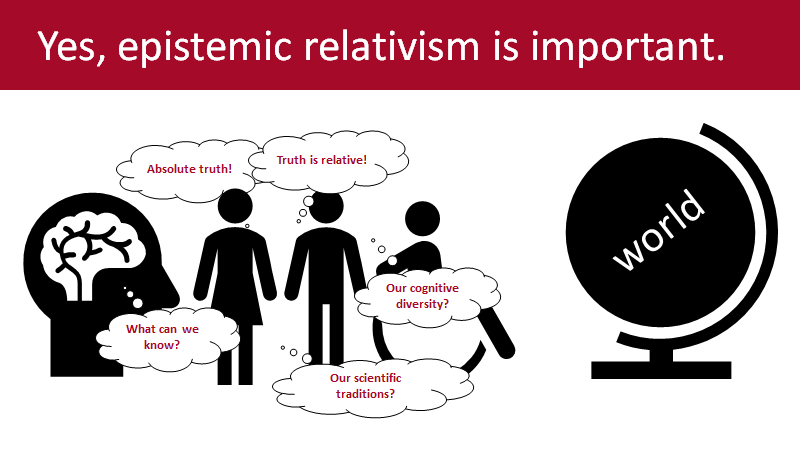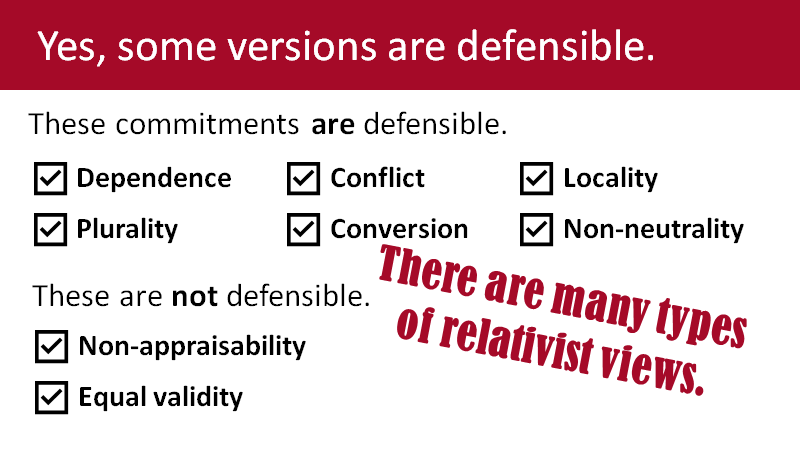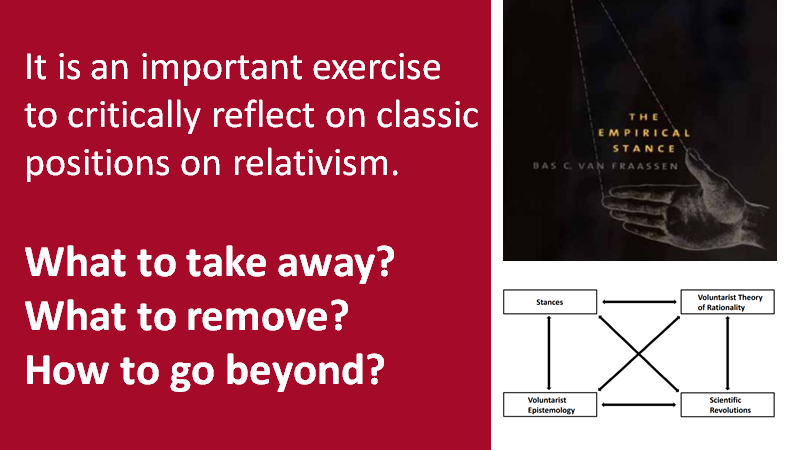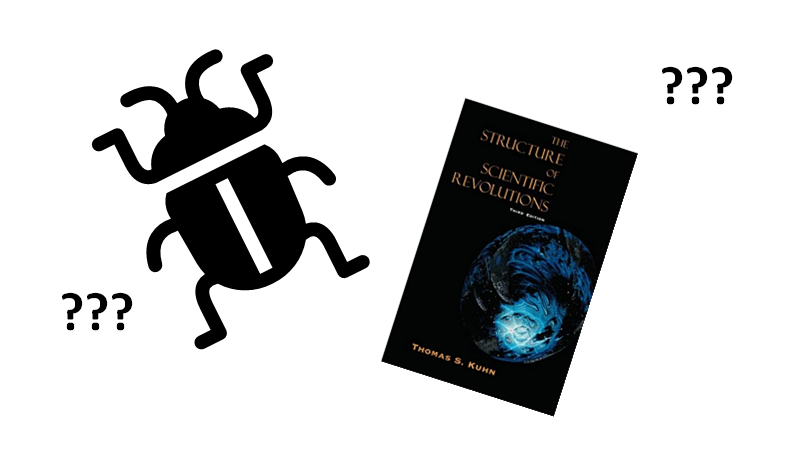What a treat to have @MartinKusch @UniVienna with us this week to talk about "Relativism in Philosophy of Science" at the #KLIColloquium! His new book on this topic @CambridgeUP will come out in a few months.
A few general take-home messages from his talk: a gif AND a thread!
A few general take-home messages from his talk: a gif AND a thread!
1/ Is relativism still relevant in philosophy of science? Understanding epistemic relativism, esp. in a “post-truth” era, is important. It raises Qs about our cognitive achievements & diversity. About our relationship to our world, communities, and cultural, scientific traditions
2/ Is relativism defensible then? Whether a relativist position is defensible depends on its commitments. In fact, many #philsci positions (perspectivism, pluralism, etc) are defensible relativist views because they satisfy many relativist commitments (see below).
(con& #39;t) It is common to think that we can dismiss post-truth politics, science skepticism, etc on the grounds that relativism is indefensible. Yet what has been defeated are versions like “all beliefs are equally true/valid” There are many other reasonable versions of relativism!
3/ Why study relativist views? Careful reflection on the strengths & weaknesses of phil theories (like the way van Fraassen developed relativist views in order to render Kuhnian scientific revolutions rational) can help us better understand how to pick & choose a good way forward
Relativism in #philsci is important & defensible. We can gain so much from digging deep into phil work. For this thread, we won& #39;t go into the details of @MartinKusch& #39;s nuanced analyses, so we& #39;ll leave you with a quiz/taster that can perhaps encourage you to buy his book!

 Read on Twitter
Read on Twitter





